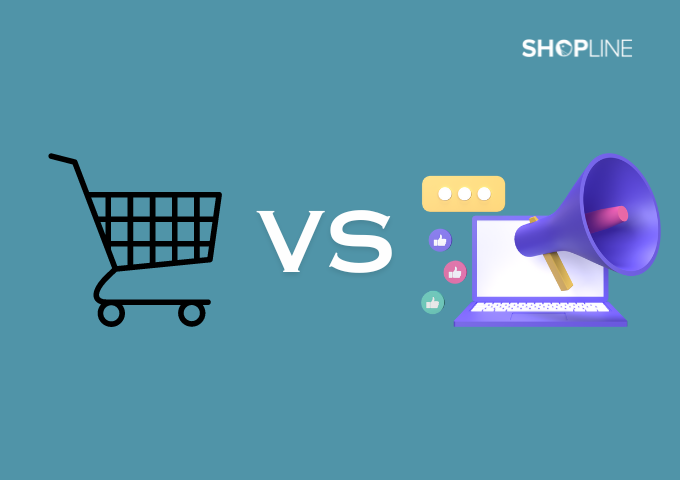What are the Advantages And Disadvantages of Affiliate Marketing, Affiliate marketing offers a low-cost way for businesses to reach a wider audience and can generate passive income for affiliates. However, it requires careful management to maintain a positive brand image and can be impacted by changes in the affiliate program or market trends.
Affiliate marketing is a popular strategy for businesses to expand their reach and generate sales, while affiliates can earn commission by promoting products or services. We’ll explore the advantages and disadvantages of affiliate marketing, and provide insights into how to effectively navigate this marketing approach for optimal results.
Whether you are a business considering affiliate marketing or an individual looking to be an affiliate, understanding the pros and cons of this strategy is crucial for success.

Credit: www.facebook.com
Advantages Of Affiliate Marketing
Affiliate marketing offers numerous advantages for both businesses and individuals looking to generate income online. Below are several key advantages of affiliate marketing:
Flexibility Of Work
Affiliate marketing provides individuals with the flexibility to work from anywhere, at any time. This freedom allows for a better work-life balance and the opportunity to pursue other interests and commitments. As an affiliate marketer, you can create your own schedule and manage your work according to your personal preferences.
Passive Income
One of the most attractive aspects of affiliate marketing is the potential to earn passive income. By strategically promoting products and services, affiliates can continue to earn commissions long after the initial effort is invested. This passive income stream can provide financial stability and the opportunity to grow your earnings over time.
Low Start-up Costs
Affiliate marketing requires minimal investment to get started. Unlike traditional businesses that often require substantial capital, affiliate marketing allows individuals to begin promoting products and earning commissions with little to no initial costs. This low barrier to entry makes it accessible to a wide range of individuals, regardless of their financial resources.

Credit: www.shopify.com
Disadvantages Of Affiliate Marketing
Affiliate marketing has its drawbacks, including the risk of low commission rates and dependence on the success of the merchant. Additionally, competition can be fierce and there may be limited control over product quality and customer experience. However, with careful strategy and planning, these challenges can be overcome to reap the benefits of this popular marketing approach.
The world of affiliate marketing is not without its downsides. While it presents numerous opportunities for individuals and businesses, it’s important to be aware of the potential disadvantages that come with this marketing strategy.
Competition
A major disadvantage of affiliate marketing is the high level of competition. With countless affiliates vying for the attention of the same audience, it can be challenging to stand out and attract conversions. The oversaturation of the market often leads to a constant battle for visibility, making it difficult for new affiliates to make an impact.
Dependence On Affiliate Programs
A significant drawback of affiliate marketing is the reliance on affiliate programs for revenue. Affiliates are at the mercy of the affiliate programs they partner with, and any changes to the program’s structure or commission rates can have a direct impact on their earnings. This lack of control over the program’s policies and decisions can make affiliates vulnerable to sudden drops in income.
Uncertain Income
Another disadvantage of affiliate marketing is the unpredictable nature of income. Affiliates often face fluctuating revenue streams, as their earnings are tied to the performance of the products or services they promote. Seasonal fluctuations, market trends, and changes in consumer behavior can all influence the amount of income an affiliate generates, leading to a lack of stability and financial security.
Ultimately, while affiliate marketing offers numerous benefits, it’s crucial to consider the potential downsides and develop strategies to mitigate these challenges. By understanding and proactively addressing these disadvantages, affiliates can maximize the potential of this marketing approach and navigate the competitive landscape more effectively.
Tips For Success In Affiliate Marketing
Affiliate marketing is a proven strategy that can help you earn passive income and build a successful online business. However, succeeding in affiliate marketing requires strategic planning and effective execution. In this section, we will discuss three essential tips that can help you achieve success in affiliate marketing: selecting the right niche, building a strong online presence, and creating valuable content.
Selecting The Right Niche
Choosing the right niche for your affiliate marketing business is crucial for your long-term success. It’s important to select a niche that aligns with your interests and expertise while also having a high demand in the market. Here are a few tips to consider when selecting your niche:
- Do thorough research to identify profitable niches with substantial buyer demand. Use keyword research tools or platforms like Google Trends to identify trending topics.
- Consider your own interests and passions. A niche that you are passionate about will help you stay motivated and engaged in your content creation process.
- Evaluate the competition within the niche. Look for gaps or underserved areas where you can provide unique value to your audience.
Building A Strong Online Presence
To succeed in affiliate marketing, you need to build a strong online presence that establishes you as a reliable and trustworthy authority in your niche. Here are some tips to help you build your online presence:
- Create a professional website or blog that showcases your expertise and provides valuable content for your target audience.
- Optimize your website for search engines (SEO) to attract organic traffic. Focus on keywords relevant to your niche and include them in your meta tags, headings, and content.
- Build a strong social media presence by engaging with your audience on platforms where they are most active. Share valuable content, respond to comments, and participate in relevant discussions.
- Establish strategic partnerships with other influencers or businesses in your niche. Collaborating with others can help expand your reach and credibility.
Creating Valuable Content
Creating valuable and engaging content is critical to attract and retain your target audience. Here are some tips to create content that drives traffic and conversions:
- Understand your audience’s pain points and provide solutions through your content. Offer helpful tips, tutorials, product reviews, and recommendations.
- Ensure your content is well-researched, credible, and unique. Use reliable sources and cite them appropriately.
- Add visual elements like images, videos, infographics, and charts to make your content more engaging and easy to understand.
- Include compelling calls-to-action (CTAs) within your content to encourage your audience to take the desired action, such as making a purchase or signing up for a newsletter.
By implementing these tips, you can set yourself up for success in affiliate marketing. Remember to stay consistent, continuously analyze your results, and adapt your strategies as needed to maximize your earning potential.
Future Of Affiliate Marketing
In the rapidly evolving landscape of digital marketing, the future of affiliate marketing is bright. It offers a multitude of advantages, such as low startup costs, a diverse range of products and services to promote, and the potential for passive income. However, like any other marketing strategy, it also comes with its fair share of disadvantages. Let’s delve deeper into the future of affiliate marketing and explore the growing industry and the integration of influencer marketing.
Growing Industry
Affiliate marketing is experiencing unprecedented growth, thanks to the expanding digital market. As more businesses move online, opportunities for affiliates to promote their products and earn commissions are multiplying. In fact, according to recent studies, the affiliate marketing industry is projected to reach a staggering value of $8.2 billion by 2022. This showcases the immense potential and profitability that awaits those who choose to tap into this field.
Influencer Marketing Integration
In recent years, influencer marketing has gained tremendous traction, shaping the future of affiliate marketing. Influencers with large followings have become key players in promoting products and services through their captivating content. By partnering with influencers, businesses can reach a highly targeted audience, enhancing brand exposure and driving revenue. With the integration of influencer marketing into affiliate strategies, affiliates can leverage the credibility and popularity of influencers to maximize their affiliate sales and commissions.
To navigate the ever-changing digital marketing landscape, staying updated on the latest trends and techniques is essential. As the future of affiliate marketing unfolds, affiliates who are adaptable and embrace emerging trends, such as influencer marketing, will be at a distinct advantage.

Credit: www.facebook.com
Frequently Asked Questions For What Are The Advantages And Disadvantages Of Affiliate Marketing
What Are The Advantages Of Affiliate Marketing?
Affiliate marketing offers a cost-effective way to promote products and services, as you only pay for results. It also allows you to tap into a wider audience base and leverage the influence of affiliates. With minimal risk and low investment, you can generate passive income and expand your brand presence globally.
Can Affiliate Marketing Generate Passive Income?
Yes, affiliate marketing is a great source of passive income. Once you set up your affiliate program and recruit affiliates, they will promote your products or services on their platforms. You earn a commission for each sale or action they generate.
This means you can continue to earn passive income even when you’re not actively promoting your offerings.
Are There Any Disadvantages To Affiliate Marketing?
While affiliate marketing offers numerous benefits, it also comes with a few drawbacks. One disadvantage is the potential for fraudulent activity and unethical practices, such as cookie stuffing or spamming. It can also be challenging to find reliable and trustworthy affiliates who align with your brand values.
Maintaining communication and managing relationships can be time-consuming.
How Does Affiliate Marketing Benefit Affiliates?
Affiliate marketing provides an opportunity for affiliates to earn a commission by promoting products or services they believe in. It allows them to monetize their platforms, such as websites, blogs, or social media accounts. Affiliates can also expand their reach and build relationships with brands, potentially leading to other collaborative opportunities in the future.
Conclusion
Affiliate marketing offers numerous advantages such as low startup costs, passive income potential, and a wide range of products to promote. However, it also has its disadvantages including intense competition, potential for fraud, and the need for continuous marketing efforts.
Nevertheless, by carefully planning and implementing effective strategies, affiliate marketers can reap the benefits while minimizing the drawbacks. So, if you’re considering venturing into affiliate marketing, weigh the pros and cons, and make an informed decision.




